Pillar Centre held the International Scientific Webinar: (Child Labour between Permissible and Prohibited).
Pillar Centre for Conflict Resolution, International Arbitration and Scientific Research- London in partnership with the Lebanese University – Lebanon, Gezira University – Sudan, Polytechnic University – Palestine, Kassala University – Sudan, Dilling University – Sudan, Dhi Qar University – College of Physical Education – Iraq, Wasit University – College of Basic Education- Iraq, University of Maysan- College of Basic Education- Iraq, Sumer University- College of Education, Psychological Research Center- Ministry of Higher Education and Scientific Research- Iraq, Educational Research Center- University of Khartoum- Sudan and Biosciences Research Support Foundation (BRSF) Nigeria, held the International Scientific webinar: (Child Labour between Permissible and Prohibited).
Prof. Nermin Majed, PhD in Educational Technology and the Director General of the Pillar Centre, chaired the session and welcomed the attendance, where she emphasized the great role of researchers, educators and great decision makers in working to find solutions to this phenomenon, which in turn confirmed that child labour is a product of the duality of poverty and ignorance, and that laws and charters that prohibit child labour will remain ink on paper if the main issue is not addressed.
Prof. Bader Nasser, Director of the Babylon Centre for Cultural and Historical Studies – University of Babylon – Iraq, co-chaired the session, and praised the importance of this topic and the different points of view and the definition of this term from the nature of one society to another. He also added that child labour has existed since ancient times, even in European countries, however, the Arab countries are in front of the real dilemma, which is the availability of sufficient funds to support ending this phenomenon.
The session discussion was opened by Prof. Ali Odeh, Director of the Psychological Research Center – Ministry of Higher Education and Scientific Research – Iraq, who spoke about the psychological factor of child labour according to the different type of work and its conditions and family conditions, and children’s sense of social injustice and lack of social justice comparing to their peers. He also talked about sexual abuse at work, feelings of humiliation, social inferiority, lack of emotional development, and child’s preference for the economic value over the scientific value, which leads to an imbalance in the arrangement of values.
Prof. Mai Al-Abdullah, a research professor in media and communication sciences at the Lebanese University – Lebanon, spoke about the role of the media in shedding light on this phenomenon, which she described as largely negligent. She also mentioned that the statistics regarding working children are the highest in low-income countries. She also touched on the reality of children in Lebanon and the role of the Lebanese media in shedding light on this aggravating phenomenon, as the Lebanese media does not give it its due, as she says.
Dr. Al-Ridha Hussein, Professor of Development Psychology at the University of Dilling – Sudan, talked about child labour in conflict areas and the types of professions practiced by children in these areas. She indicated that the conflict areas have a high rate of human trafficking, particularly children. Through her speech, Dr. Hussein referred to the causes of child labor in conflict areas, the most important of which was early marriage. She also went on to talk about the effects and risks.
In turn, Prof. Huda Alawi, Professor of Criminal Law and Director of the Women’s Center for Studies and Training – Yemen, talked about the issue of child labour from a legal point of view. She spoke about the weakness of countries taking legislative measures and real guarantees that would reflect their commitment after signing international agreements related to ending child labour and achieving the Sustainable Development Goals approved by the United Nations. As she described human rights, social and civil rights, and others in many countries, as nothing but ink on paper. Dr. Alawi also highlighted the current situation in Yemen and the reality of children in Yemen due to conflicts and wars.
Dr. Abu Baker Luqman, Professor of Curricula and Methods of Teaching Science and Director of the Educational Research Center at the University of Khartoum – Sudan added that child labour in Sudan is shocking numbers due to families’ lack of awareness of the importance of education and the future of their children. He also noted that at the present time there are no accurate figures for the percentage of working children in Sudan, as the issue is no longer a phenomenon, but rather has become a reality that extends and worsens day after day.
As for Prof. Rasha Hegazy, Head of the Public Relations and Advertising Department at the International Higher Institute of Media – Egypt, she spoke about the cultural value dimension due to the technological development witnessed in the current era and the entry of social media into our lives. She touched on another type of child labour, which is child labour on social media, whether they joined it with love or against their will, to earn money. And how it affected the child’s vision and ambition for his future compared to the good times, as she described it.
Dr. Shatha Al-Maidani, PhD in Educational and Psychological Measurement and Evaluation and Head of the Graduate Studies Department at Damascus University – Syria, mentioned horrible statistics about child labour in Syria, which increased due to the spread of the Corona epidemic and the deterioration of the economic situation. She also talked about the sexual exploitation of children, as the presence of children on the streets makes them more vulnerable to dealing with gangs. She urged attention to the category of orphans, as they are the category most vulnerable to child labour.
Finally, Ms. Hala Nabhan, a lawyer and human rights activist at the Women’s Affairs Center-Palestine, discussed the issue from a legal point of view as a lawyer. She spoke about beneficial work and harmful work, in addition to the negative concept of child labor, which international law forbids, and the positive concept of child labor, which includes a voluntary and positive aspect that reflects on children’s growth whether mentally or physically. In her speech, Ms. Nabhan touched on child labour in international conventions and laws, the reality of child labor in Palestine, besides to the Palestinian Child Law.
Worth to be mentioned, that the webinar was held on Sunday 12/06/2022 on the occasion of the International Day against Child Labour, where many experts and researchers from many Arab countries and the African continent participated in it to shed light on the increasing of the child labour crisis in many countries and societies around the world and the search for solutions to reduce this rampant phenomenon to apply it on the ground.
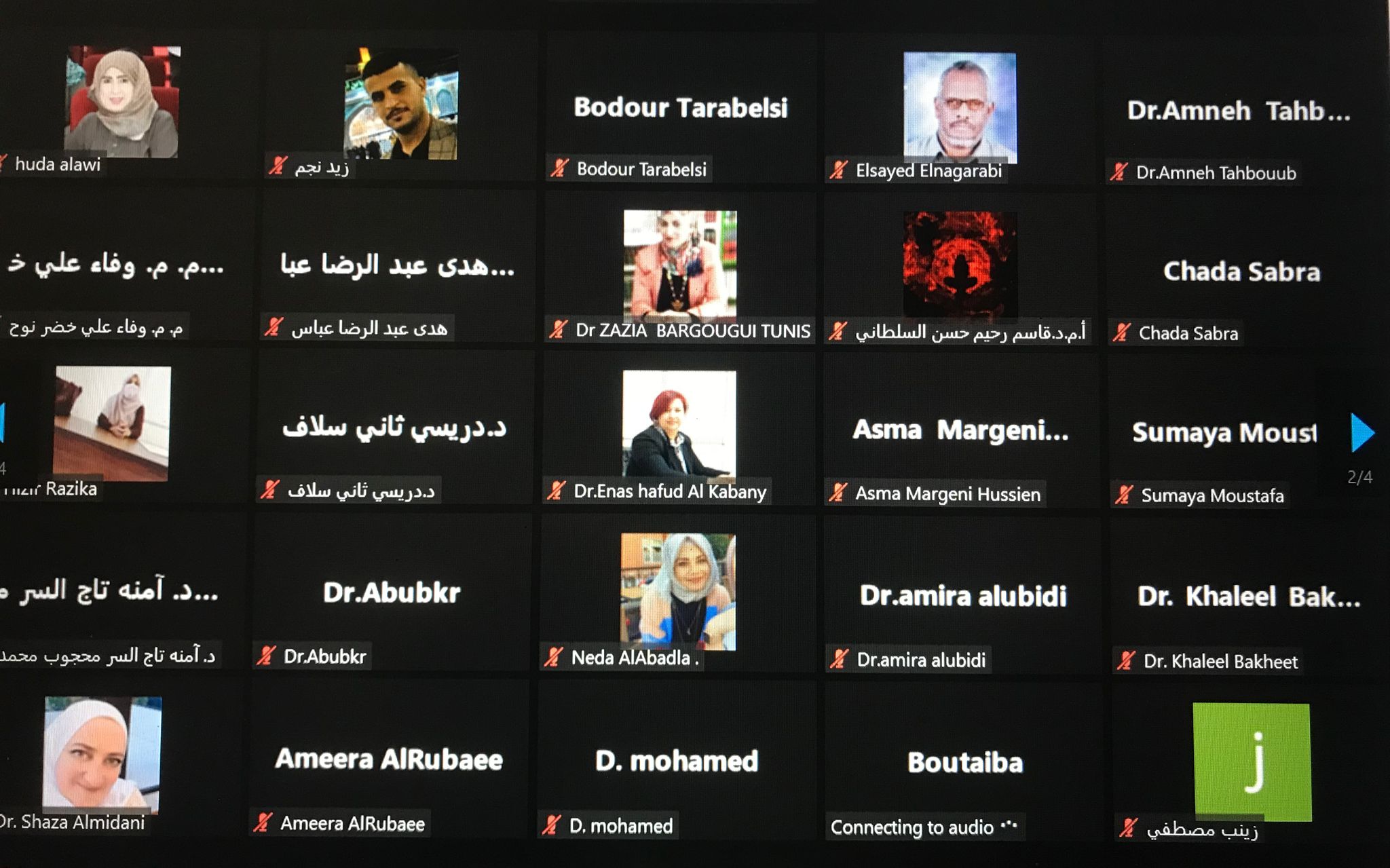

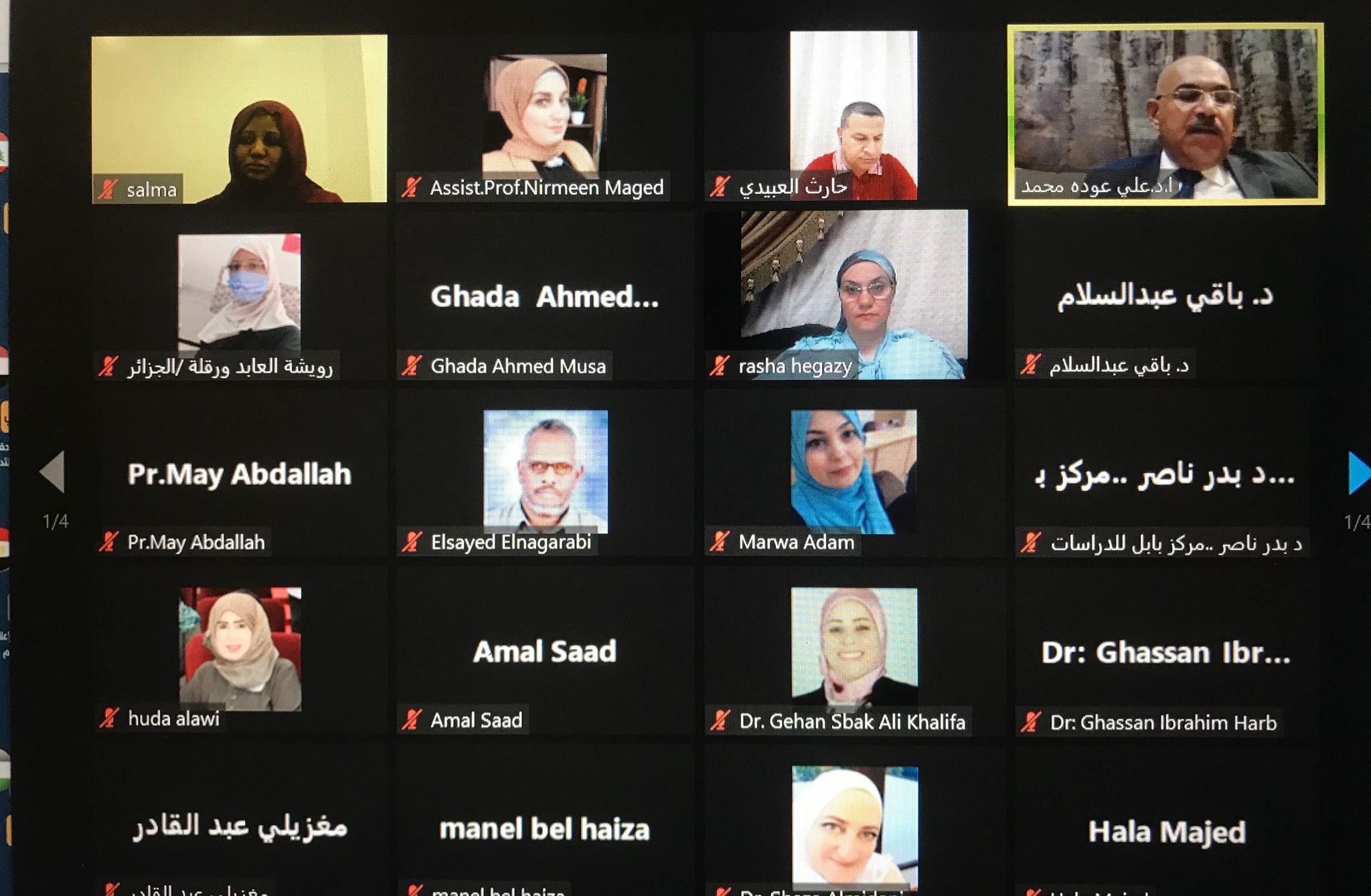


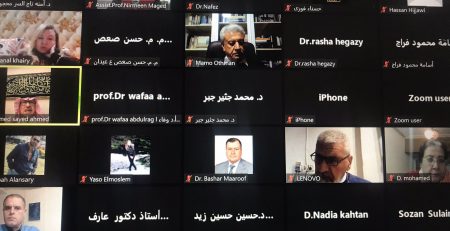
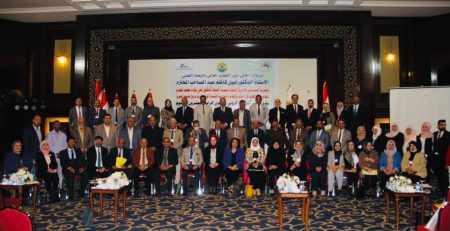
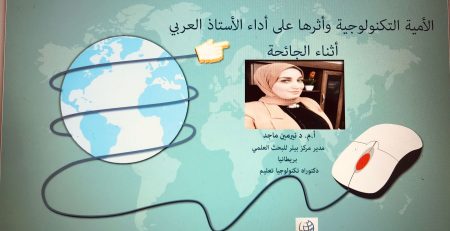
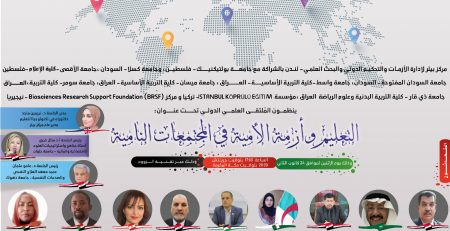
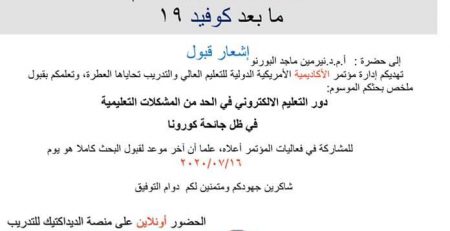
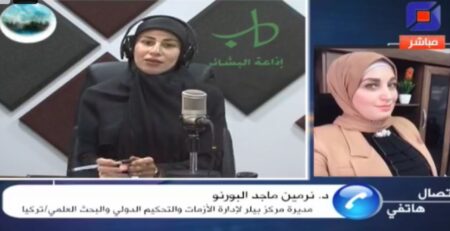

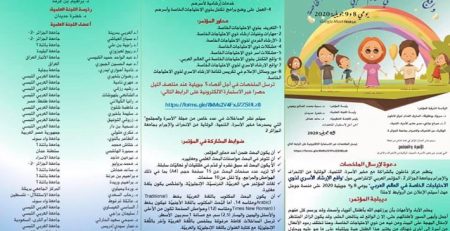
Leave a Reply